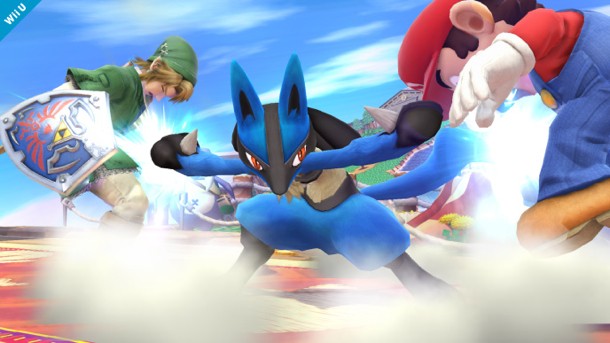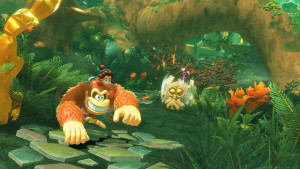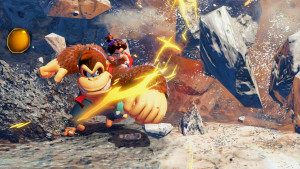Subscribe now to get the Vampire: The Masquerade – Bloodlines 2 issue and a D&D poster pack-in!
Nintendo Reports $234 Million Loss On Weak Hardware Sales And Foreign Exchange

Nintendo’s fiscal year is off to a rough start, the company announced this morning. The House of Mario is starting its year with a ¥24.5 billion ($234.3 million) hole from which it will need to dig out.
The quarter saw significantly diminished sales year-over-year. Revenues dropped 31.3 percent, with Wii U hardware sales dropping to 220,000 (a 53 percent decrease over this period last year). 3DS sales also dipped to 940,000 for the quarter (a 7 percent decrease). Software in both categories was up, though. Wii U software sales increased by 7 percent, and 3DS games were up 3 percent.
Nintendo is only anticipating selling 800,000 Wii U consoles this year. It expects to sell 5 million 3DS handhelds.
Nintendo was hurt by foreign exchange rates. The company reported ¥35 billion ($334.2 million) loss in this area, which pushed ordinary income and net income into the red.
The company only has a handful of games announced for Wii U, finishing out the console’s life. Paper Mario Color Splash, arriving on October 7, is the only big release in 2016. Beyond that it’s The Legend of Zelda: Breath of the Wild and the still lingering Project Giant Robot.
On the 3DS side, Nintendo’s stars will be Pokémon Sun and Moon. Additionally, the company will release Metroid Prime: Federation Force, Style Savvy: Fashion Forward, Dragon Quest VII and VIII, two different versions of Yo-Kai Watch 2, Mario Party Star Rush, and Ever Oasis in this fiscal year.
The company plans to release its next console, NX, in March 2017. That will have potentially significant impact on the fiscal year as pre-orders will be delivered and revenue recognized prior to the March 31 close. The most recent report about NX suggests it will be primarily a cartridge-based handheld with television compatibility.
Nintendo has also announced a delay for the potentially lucrative Pokémon Go Plus wearable. It will now arrive in September, with the NES Classic Mini plug-and-play console due in November.
[Source: Nintendo]
Our Take
The NX release will help Nintendo dig out of its sales deficit, but it’s the foreign exchange that crushed the company. We expect hardware sales to be weak at the end of a generation (and Nintendo’s own projections acknowledge this).
However, what we can’t anticipate quite yet is what happens if people don’t need to upgrade both a 3DS and a Wii U. If Nintendo consolidates its two hardware lines, pricing will be crucial.
As an example, we have three 3DS handhelds in my house. I wouldn’t buy three Nintendo home consoles. I would likely buy multiple handhelds. As much as the hardware’s release will help the financials, Nintendo needs to be careful how it positions the NX in the market.













